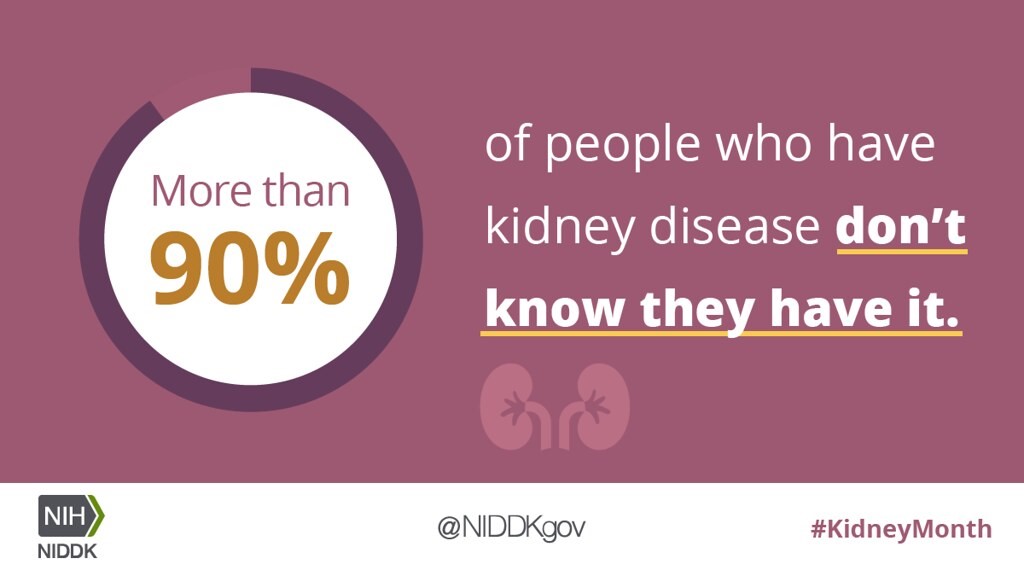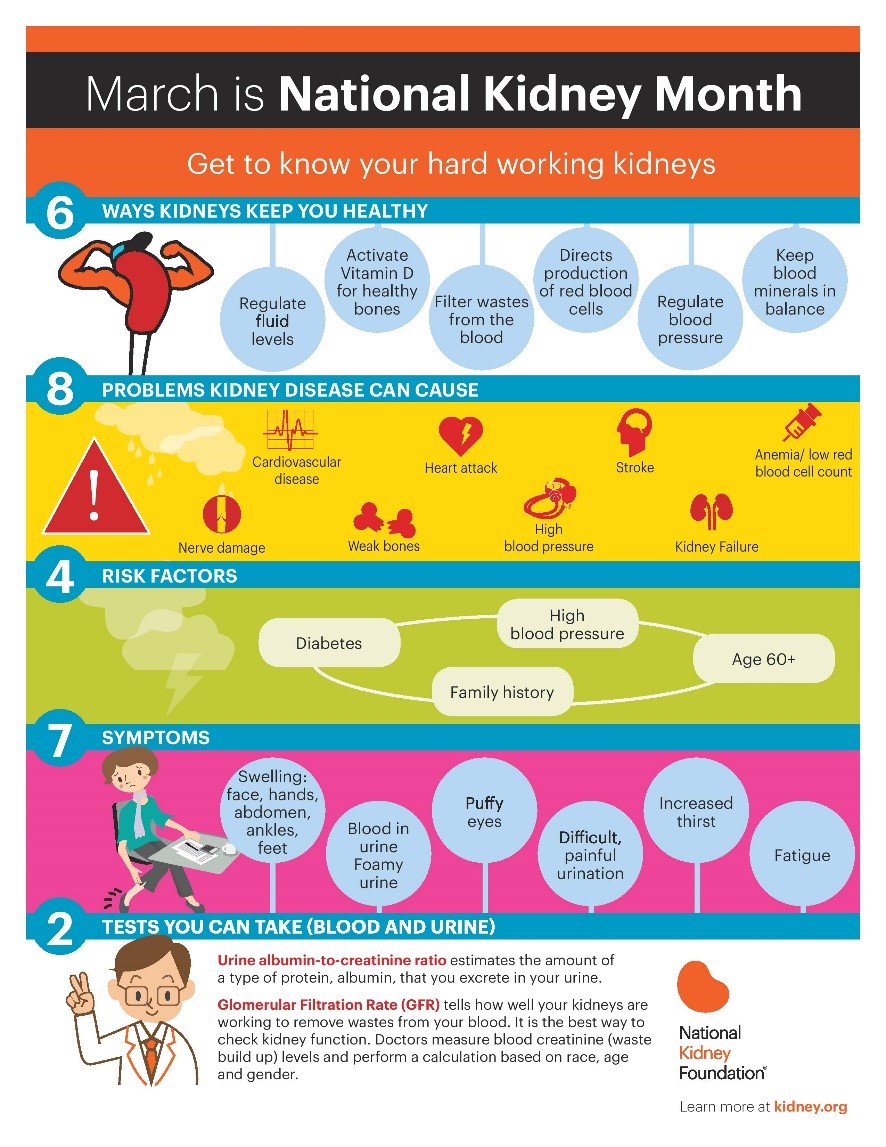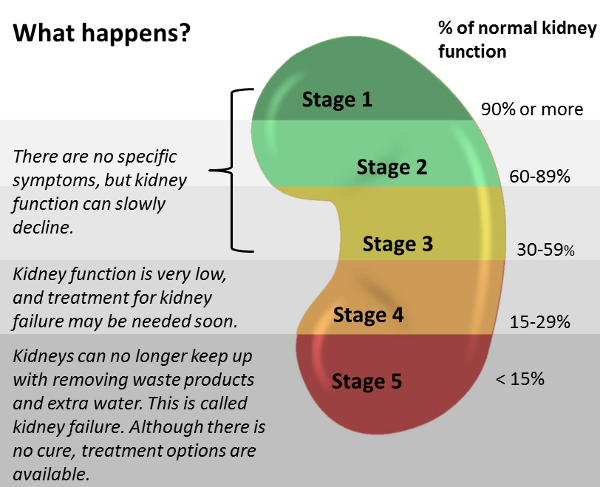By: Rebecca Modene PhD, RN - Manager of Clinical Underwriting
March is National Kidney Month and March 12th is World Kidney day. Astoundingly 10% of the world’s population is affected by chronic kidney disease (Kidney.org, 2019). In the United States, an estimated 37 million American adults have chronic kidney disease (Kidney.org, 2019). According to the Sun Life 2019 top claims report, chronic/end stage kidney disease is the third largest expensive diagnosis with $159.3 Million in stop loss spend. Additionally, 16% of employers had at least one shock claimant for chronic/end stage renal disease (Sun Life, 2019). Looking beyond the monetary impact, kidney disease effects an individual’s physical, emotional, and cognitive function and overall self-reported quality of life (Kittskulnam, Sheshadri and Johansen, 2016). A diagnosis of chronic kidney disease for an employee, their spouse, or dependents could have an impact on job performance, sick time, or cause disruptions to the workday. It is vital for everyone to understand the kidneys’ functions and the importance of maintain kidney health.

Image from: “Kidney Disease” by National Institutes of Health (NIH) is licensed under CC PDM 1.0
What Do the Kidneys Do?
The kidney is a powerful organ that serve multiple life sustaining functions.
- The primary function of the kidney is to filter toxins out of the blood stream. This essential action removes waste product from the body and enables a higher level of tolerance for many containments that could cause harm. However, over time if the kidney must persistently remove high levels of toxins such as elevated blood sugars kidney function can deteriorate.
- A secondary function of the kidney is to regulate blood pressure. The kidney regulates fluid and electrolyte balance throughout the body. When the body has increased or decreased levels of electrolytes such as sodium, potassium or chloride the kidneys work to get the bodies electrolyte levels back in balance by increase or decrease fluid held or released by the body, which directly impacts on blood pressure.
- The kidney also is key in the production of red blood cells and activates vitamin D (National Institute of Diabetes and Digestive and Kidney Disease, 2018).

Image from: https://www.kidney.org/sites/default/files/NKM_Infographic_Flyer4-page-001_0.jpg
Progression and Treatment Options
If a person is diagnosed with chronic kidney disease there are not many treatment options available. The severity of the kidney disease and the overall health of the individual both play a role in determining treatment. The severity of kidney disease is noted in five stages. Stage V kidney disease is also known as end stage renal disease (ESRD).

Image found at https://choosingdialysis.org/YourKidneyHealth/ChronicKidneyDisease.aspx
As kidney function decreases, according to the National Kidney Foundation (2019), signs and symptoms can occur such as:
- Increase Fatigue
- Trouble sleeping
- Dry and itchy skin
- Change in urine (bloody, foamy, increase urgency)
- Swelling in ankles, feet and/or around eyes
- Decrease appetite
- Increased thirst
- Muscle cramping
However, sometimes there are no symptoms or symptoms occur slowly over time and go unnoticed. Early detection and prevention are key to protecting kidney function. Blood tests in a routine basic metabolic panel (BMP) can give a health care provider a snapshot of the kidney’s health.
The only current treatments available for kidney failure are peritoneal or hemodialysis. The average cost of dialysis is around 90K/year, but price can very per individual. The average life expectancy on dialysis is 5-10 years (Kidney.org, 2015). Medications are given to protect and support kidney function but are not curative treatment. The only cure for end stage kidney disease is a kidney transplant. The average wait time on the national organ transplant waiting list is 3-5 years but can be longer in some regions of the country (kidney.org, 2019). In July 2019, UNOS (United Network for Organ Sharing) announced a collaborative initiative to better support people with end stage kidney disease.
New Medical Advancement on the Horizon
Hojs, Fissell and Roy (2020) describe the newest medical advancement for kidney disease from a team of scientists based out of the University of California who recently revealed promising results in the animal testing phase of an implantable artificial kidney. The next step in the clinical trial process is to begin testing on human subjects. The artificial kidney is touted to replace both the waste filtration and fluid replacement elements performed by the kidneys. The filtration process occurs through an implanted device with a biocompatible silicon nanopore membrane. This therapy holds promise that someday a cure for kidney disease would have another option other than kidney transplant.
An Ounce of Prevention is Worth a Pound of Cure
The kidney is a resilient organ, but it has its limits. Anything that can be done to protect the kidneys from over exertion by protecting the kidney cells and protecting overall wellness. Ways to protect the kidney include:
- Eating a healthy diet – lower sodium intake, reduce fat intake, eat less processed foods and more fresh fruits and vegetables.
- Drink water
- Increase physical activity
- Keep high blood pressure under control
- Keep blood sugars well controlled – especially if diabetic
- Quit smoking
- Use over the counter non steroidal anti-inflammatory drugs (NSAIDs) such as aspirin, Aleve and ibuprofen only when needed. Use prescription NSAIDs such as Celebrex or Indocin only as prescribed.
Finally, ask a health care provider to test kidney function with a basic metabolic panel (BMP) blood test to have a baseline of the kidney, so that if changes occur, they can be detected earlier.
Take Away Message for Nation Kidney Month
The kidneys filter about 50 gallons of blood a day. They are integral to all other organs functioning properly. Up to 90% of people with kidney disease do not even realize they have it. It is important to get a baseline test to determine the health of one’s kidney and to protect its function through kidney friendly health practices. The only cure for end stage kidney disease is a kidney transplant, but there are possible advances in implantable artificial kidney technology, however that technology is still years away from widespread implementation.
“Life is not merely being alive, but being well” ~ Marcus Aurelius
References
Hojs, N., Fissell, W. H., & Roy, S. (2020). Ambulatory hemodialysis-technology landscape and potential for patient-centered treatment. Clinical Journal of American society of Nephrology, 15 (1). 152 – 159. doi: https://doi.org/10.2215/CJN.01970219
Kidney.org. (2015). Dialysis. Retrieved from https://www.kidney.org/atoz/content/dialysisinfo
Kidney.org. (2019). 10 Signs you may have kidney disease. Retrieved from https://www.kidney.org/news/ekidney/august14/10_Signs_You_May_Have_Kidney_Disease
Kidney.org. (2019). Global facts: About kidney disease. Retrieved from https://lifeoptions.org/learn-about-kidney-disease/causes-and-stages/
Kidney.org. (2019). Kidney disease: The basics. Retrieved from https://lifeoptions.org/learn-about-kidney-disease/causes-and-stages/
Kidney.org. (2019). The kidney transplant waitlist – What you need to know. Retrieved from https://www.kidney.org/atoz/content/transplant-waitlist
National Institute of Diabetes and Digestive and Kidney Disease. (2018). Your kidneys & how they work. Retrieved from https://www.niddk.nih.gov/health-information/kidney-disease/kidneys-how-they-work
Sun Life. (2019). 2019 Sun Life stop loss research report: High cost claims and injectable drug trends. Retrieved from: https://sunlife.showpad.com/share/kuwpzNc8z9cANstjwJW3O